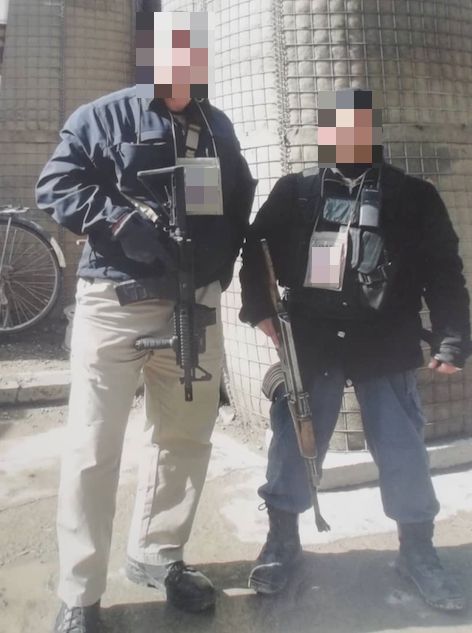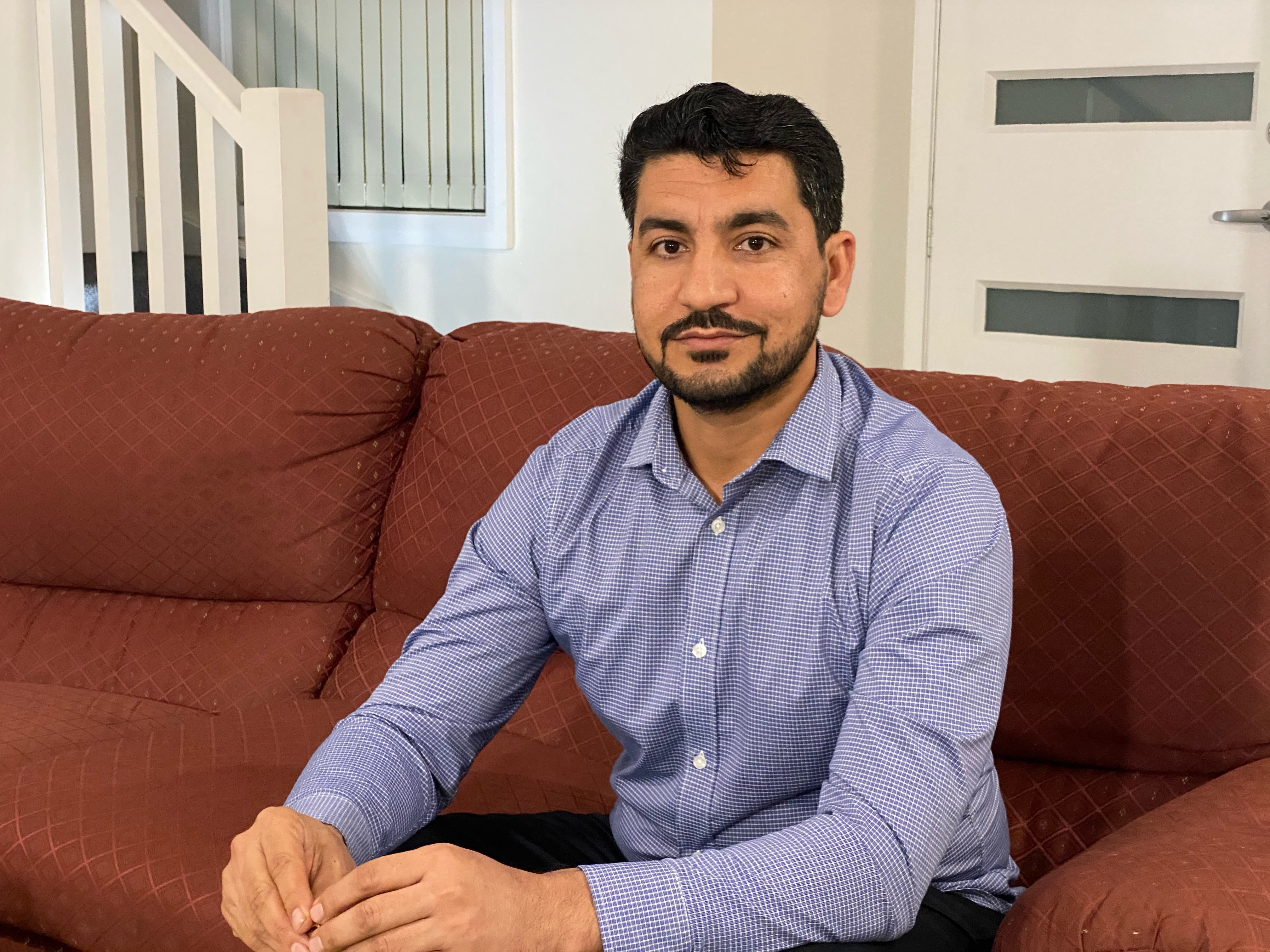Amir* has pulled his children out of school as he fears they'll be targeted because of his work with Australia.
Constantly moving homes and changing his appearance, he tries to protect himself from those who may want to do him harm because he's seen as someone who has assisted the West.
“Everybody is concerned in our country - especially those people that are working with the foreigners,” he told SBS News.
“Maybe tomorrow, maybe one week, maybe after one year the Taliban will come.”
The 36-year-old has worked as a security guard at Australia's embassy in Kabul for more than a decade.
But he is one of the 100 local staff who became unemployed on Friday when the embassy closed indefinitely for security reasons, as international troops withdraw from the country.
Another is Habib*, who is hoping to move his young family out of Afghanistan as soon as possible because of his work.
“They will kill us very easily, the people working with the foreigners,” he told SBS News.
“We are not sure every minute what will happen in our country, if we can we should move our family from here to any other country immediately, because if they [the Taliban] get us, they will kill us directly.”

Amir has worked alongside Australian diplomats for ten years. Source: Supplied
A sudden policy change
When the Australian government announced the embassy's closure on Tuesday, some of the security guards received an email from the Department of Foreign Affairs saying they would “not be eligible for resettlement” as they worked “as an employee of a private security company".
But late on Thursday night, following inquiries by SBS News, this policy changed.
The guards received a revised email from the department which removed the ineligibility criteria and said, “security staff can also apply for the Locally Engaged Staff Humanitarian Visa”.
DFAT has not responded to questions from SBS News about the policy change.
The guards may be eligible to apply for a visa, but there's no guarantee of success and the documents can take years to process.
For now, Amir says he's relieved.
“I am very happy now … we are thankful, we really appreciate it,” he said.
“We have children, at least we can do something for their future.”
Time waiting is time in danger
Prime Minister Scott Morrison the departure of Australian and allied forces over the next few months brought with it an increasingly uncertain security environment.
"The government has been advised that security arrangements could not be provided to support our ongoing diplomatic presence," he said.
In the meantime, DFAT officials will visit Afghanistan from other residential posts in the region.
Following the closure announcement, a Taliban spokesman told the AFP news agency it “will provide [diplomats] a safe environment for their activities".
“The Islamic Emirate of Afghanistan assures all foreign diplomats and staff of humanitarian organisations that [we] will not pose any threats to them,” he said.
But former Australian Defence Force interpreter Ahmad Shah Shahi says he doesn’t believe this statement, claiming he knows what it’s like to be threatened by the Taliban.
“I was living on a sharp edge of knife … I had been threatened by the Taliban, I received a night letter and a phone call [saying] they were going to target me,” he told SBS News.
“I couldn't go out of my home, I felt like I was in a prison, I was not able to go to the bazaar and do shopping for my family.” His family touched down in Australia 18 months ago, after waiting seven years for a visa.
His family touched down in Australia 18 months ago, after waiting seven years for a visa.

Former ADF Interpreter Ahmad Shah Shahi Source: Supplied
The former interpreter hopes it does not take this long to bring the other staff to Australia, as the security situation in Afghanistan is even more dangerous now than when he was there.
“The US troops and Australian Defence Force are going to withdraw from Afghanistan so there won't be anybody to protect them, so they will be in like 100 per cent danger, so they need it as soon as possible, like urgently,” he said.
John Blaxland, Professor of International Security, Strategic and Defence Studies at the Australian National University, said the chances of getting the guards to safety in Australia will diminish if the humanitarian visas aren't granted before troops leave in September.
“Not having an embassy makes it much more difficult to arrange and follow the protocols in Afghanistan to enable these people to leave the country and come to Australia - it is considerably more challenging,” Dr Blaxland said.
“We just don’t have the footprint there anymore to make it happen.”
For Amir, he is hoping his children can enrol in an Australian school next year.
*Names in this story have been changed for security reasons.



